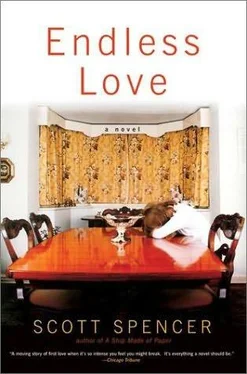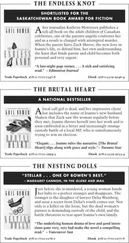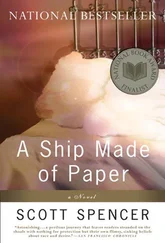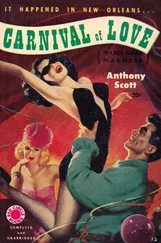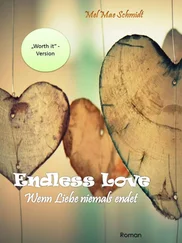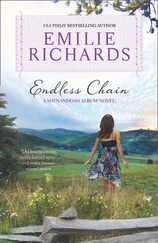That afternoon and into the evening we talked about her life alone in New York. Until it went bankrupt, her family had run a charity called the United States Foundling Homes, a kind of combination orphanage and vocational school that would have seemed more at home in a Dickens novel than in the sunny USA. It was Ann’s father who sped the dissolution of the Foundling Homes—he awarded himself a salary high enough to verge on embezzlement—but it turned out to be fortunate for Ann because it was the recently dead Mr. Ramsey’s money she lived on now. Her legacy afforded her $850 a month, and she talked about living on a finite sum, of buying her clothes in thrift shops, pilfering sugar from restaurants, and of living with a general overall material pessimism that turned out to be justified—though $850 every month seemed like a more than adequate sum to me, Ann claimed that she never made it through a month with anything left over. “I haven’t eaten on the last day of a month since I moved here.” We talked about the prices of things, of shopping at Saks Fifth Avenue and then taking the bus down to the “Jewish Lower East Side” to see if she could find something similar, of sitting in the stratosphere in Carnegie Hall, and having to keep up her payments to Blue Cross. (I interjected that my father’s lover had been hospitalized for weeks and that I hated to think what her bills were, but Ann let it pass without a curious tilt of her head.) She talked about the price of typing paper, the price of ribbons, the cost of Xeroxing and postage, and I said I was glad she was writing again.
“I’m glad too,” she said. “I’ve gotten close to selling two of them to The New Yorker. They send a very sweet rejection letter. Full of encouragement and such. I would be encouraged, too, if they hadn’t grabbed what I sent them twenty-five years ago. It’s true what they say about early success: it is a jinx.”
“That’s a comfort to me, at least,” I said.
“One of the little quote unquote literary magazines printed a story of mine last month. But no money. Enough glory to stuff a hummingbird, but they didn’t even refund my postage.”
“Still,” I said, “it’s great to be published. What magazine? Do you have a copy? Let me see it.”
“No. I don’t want to. It’s not a very good magazine. I don’t know why I sent them a story. And it’s a terrible story. I did it all wrong. From now on, once The New Yorker turns a story down I’m going to either redo it or throw it away. They publish stories that are written the way I want to write.”
“I’d still like to read the story.”
“But I’m not going to show it to you. I don’t even know if I kept my copy of the magazine. They send one copy, by the way.”
“Can you at least tell me what it’s about?” I asked.
“OK. You finally asked the right question. The title of the story is ‘Meyer’ and it’s about you.”
I felt a nervous laugh hatch at the top of my throat but I held it down. I suppose I thought she was just making fun of me, but Ann’s only form of deception was omission. I covered my mouth with my hand, sick with triumph, electric with hope.
Evening. Ann asked me if I wanted to go out for supper.
“I’ve got a date at nine thirty,” she said. “But it’s decidedly not for dinner. I never invite men over to cook for them.”
“I’ll buy you dinner if we go to a place I can afford,” I said.
Ann left me in the front of her apartment while she went to her room to dress. Though the apartment had only two real rooms, her bedroom was separated from the front by a long hall and I felt quite alone. I paced. I looked through one of the hanging prisms in the west windows, trying to catch the flat red rays of the sinking sun. I looked at the books in her shelves, noticed her compact little stereo set and her two dozen records: Vivaldi, Bach, Joni Mitchell, the Beatles, the Fauré Requiem. The small table in front of the sofa had a few issues of The Village Voice and an old paperback copy of To the Lighthouse. I tried to absorb the facts of that room. Who was she when she’d chosen that little Chinese flowered rug? How had she come to purchase those distinctly non-Butterfieldian director’s chairs? Where did she sit when she read my letters? Where did Jade sit? Did human presence leave a kind of dust in its wake? Did the sound of Jade’s voice hang like little threads of spider weavings in the corners of the high ceiling? Were strands of her hair curled beneath the sofa cushion? If I were a bloodhound or a werewolf, wouldn’t I be able to taste her presence, drink it in through my omniverous sense organs, even if it had been months since she’d last breathed in this room?
In my pacings I passed the small kitchen. A beige telephone was on the wall and hanging next to it a blue leather book. I stared at it for a moment, without quite knowing why, until I fully realized this was Ann’s address and telephone book and that within it was undoubtedly Jade’s whereabouts, waiting to be memorized like the combination of a safe. I reached for the telephone book but thought I heard footsteps behind me. I stopped and turned—but there was no one behind me and the apartment, though humming with the noise of the city, was innocent of footsteps.
“Be with you in a minute!” called Ann from her bedroom. A new politeness (engendered by the anxiety of bachelorhood? I wondered).
“Take your time,” I said. I occupied one of the wobbly director’s chairs, and crossed my legs. All ready when you are, C.B.! The punchline of my father’s favorite joke. But in my parents’ set they weren’t called jokes: they called them “stories.” More dignity in a story. This particular story was about the third-string cameraman in a Cecil B. DeMille spectacular, and when Arthur delivered the All ready when you are punchline he laughed so eagerly, so instructively, squinting his dark brown eyes, raising his wild eyebrows, and as often as not coughing up the vapors of a half dozen Pall Malls. Oh gentle geezer!
Ann had changed into a floor-length peach and purple dress, turtle-necked and sleeveless, with a zipper up the back. The material was satiny and the pattern looked like those pictures of crystals taken by an electron microscope. Her hair, shoulder- length and absolutely straight, was parted girlishly in the center. She wore dark blue eye makeup, lipstick, and small gold earrings done to resemble the smiling, beneficent sun in a medieval woodcut. She looked at once spectacular and strange, cheerful and uncomfortable.
“The nouveau moi ,” she said, with the very beginnings of a satirical bow.
“I’m not wearing the right clothes,” I said. I was in loafers, black corduroy pants, and a pale green shirt I had to wear with the sleeves rolled because of a stain on the cuff.
“No, don’t worry. I’m dressed for later, not for dinner.”
She took me to a bar called Pete’s Tavern, which O’Henry used to patronize. On the short walk over, Ann pointed out other literary landmarks—the apartment building where one of the editors of The New Yorker lived, a small carriage house once occupied by a novelist I’d never heard of, and the former home of Washington Irving.
We sat at a booth in Pete’s. A thirty-ish-looking man with thin black hair nodded at Ann from the next table and Ann nodded back, evasively. The waiter was a young Italian wearing fancy tight trousers, a body shirt, pointed shoes, and an old apron. He said hello to Ann and asked, with what seemed to me a touch of irony, “You thirsty or what?”
“Oh, always, Carlo, always,” Ann said. “Bring me a glass of your cheapest Scotch and your coldest water.”
The waiter looked at me. “I’ll have the same,” I said.
Читать дальше
